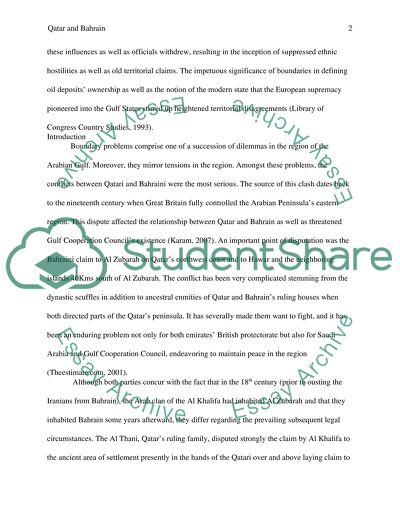Cite this document
(“Qatar and Bahrain Paper Research Example | Topics and Well Written Essays - 1750 words”, n.d.)
Retrieved from https://studentshare.org/history/1451455-political-relations-between-qatar-and-bahrain-in
Retrieved from https://studentshare.org/history/1451455-political-relations-between-qatar-and-bahrain-in
(Qatar and Bahrain Paper Research Example | Topics and Well Written Essays - 1750 Words)
https://studentshare.org/history/1451455-political-relations-between-qatar-and-bahrain-in.
https://studentshare.org/history/1451455-political-relations-between-qatar-and-bahrain-in.
“Qatar and Bahrain Paper Research Example | Topics and Well Written Essays - 1750 Words”, n.d. https://studentshare.org/history/1451455-political-relations-between-qatar-and-bahrain-in.


